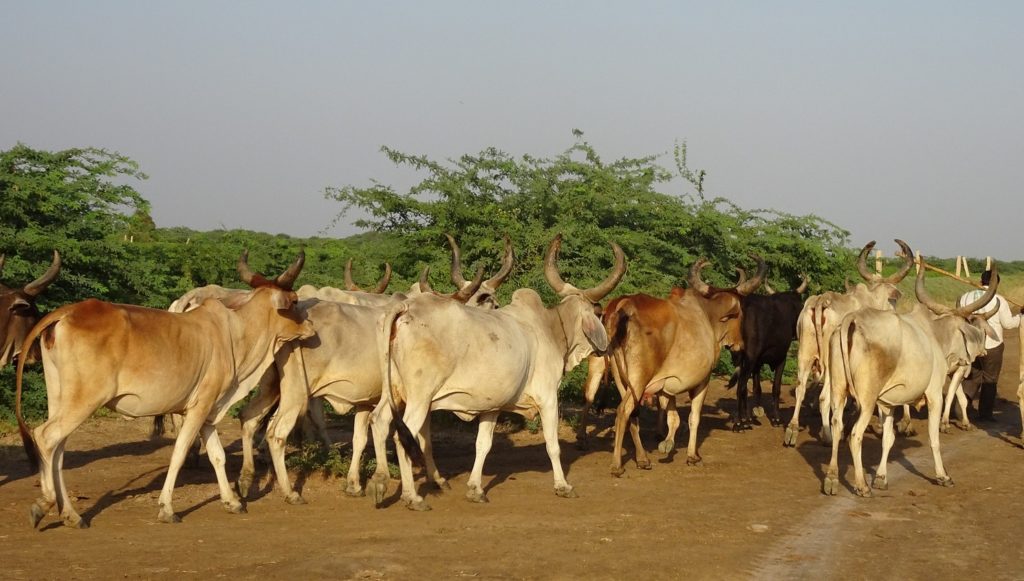As the 2023 general elections inches closer, the political atmosphere in Nigeria is being agitated by bickering, induced by political interests or as some would say regional agendas. Politicians from both sides of the divide (north and south) are engaged in fierce competition for the office of the President.
There exists a gentleman’s agreement in the Nigerian political space that the Presidency be rotated between the north and south. This convention emanated following the annulment of the 1993 presidential elections, generally believed to be won by late Bashorun M.K.O Abiola and his ensuing death in detention while insisting on realizing his mandate. That milieu gave rise to a political understanding or compensation if you like, for the Southwest region and produced the idea of a rotational presidency between the north and south of the country.
General Muhammadu BuhariFrom 1999 till date this agreement has been adhered to. The PDP had been in power at the return to democracy in 1999 and they encapsulated the concept of rotational presidency inside the term called Zoning. General Olusegun Obasanjo, a beneficiary of that understanding completed his two terms in 2007 and handed over to a northerner, Alhaji Umaru Musa Yar’Adua who died in office. While his Vice from the south, Dr Goodluck Jonathan did a term but failed to secure re-election and paved the way for a President from the North, General Muhammadu Buhari whose second tenure would end in 2023.
After the death of President Umaru Musa Yar’adua, then Vice President Goodluck Jonathan amidst intrigues was sworn in as Acting President, he completed the tenure of his predecessor and contested the 2011 election on the platform of the PDP. He emerged victoriously and finished his tenure. He decided to contest the 2015 elections and his ambition this time around put his party –PDP in disarray. The northern establishment in the party was vehemently opposed to his ambition, arguing that since President Yar’adua died in office without finishing his term, the PDP should field a candidate from Northern Nigeria to allow the rotational presidency to complete its tour in the north since the late Yar’adua took over from a southerner, Olusegun Obasanjo. President Jonathan lost his re-election partly due to the fracas his ambition caused among members of his party. Members from the north interpreted it as an affront to zoning and a violation of the gentleman’s agreement. It provided the perfect opportunity for some to decamp to the then-nascent All Progressives Congress (APC).
Conventionally, they’re two sides to the Zoning argument, those who are for and against. The argument for or against zoning underscores the need to strike a balance between equity and efficiency.
Touted as a pragmatic strategy for nation-building and a framework desired to engineer a consensus for peace and economic development. Zoning ought to foster political inclusivity and national cohesion in a secular, multi-ethnic, multi-religious country to realize just and equitable representation.
The rotational presidency is an offshoot of zoning, while it reinforces a superficial sense of belonging, it has not delivered democratic dividends in tangible terms to the masses of the country. Since the advent of the arrangement in 1999, the country is still neck-deep in disunity. Nigeria’s disunity is exacerbated by political elites who collaborate on a pragmatic level to consolidate their positions of power but are skilled at fanning the embers of division. Little wonder why “political inclusivity” is always discussed in terms of prebendal politics not developmental spread nor economic prosperity.
Eminent Nigerians like the 14th Emir of Kano, Sanusi Lamido Sanusi and Pastor Tunde Bakare represent the anti-zoning camp. The former Emir stated that “Zoning could leave us with two useless candidates in 2023”. The erstwhile monarch buttressed his point by advocating for a president irrespective of the region who can deliver, positing that we have more serious issues than focusing on where the President should come from. Emanating from an understanding that Zoning breeds mediocrity at the expense of competence, his stance is perhaps idealistic and remote.
It discountenances the rife ethnoreligious tension and expediency for nation-building, stability and development. But must there be a choice between competence and fairness?
For Pastor Bakare, “Zoning is politically immature” because the idea of Zoning has never benefited the region where power was resident. In truth, anecdotal evidence exists to support Pastor Bakare’s assertion. At no time in our political history did a region witness a heightened level of peace, development and security because the President originated from it.
In the build-up to the 2023 elections, the Southern Governors Forum (SGF) has issued two communiqués demanding that the Presidency be rotated to the South based on equity and fairness. The Northern Governors Forum (NGF) has retorted with a statement condemning the obstinacy by Governors of the South. Asserting that the demand is unconstitutional.
Subsequently, Nasir Ahmad El-Rufai, the Kaduna State Governor, clarified the position of his colleagues in the NGF saying the North was never opposed to a rotational power shift in the Presidency but took exception to the use of strong words by their Southern colleagues.
Apart from the regional Governor’s forum, leaders of major socio-political organisations from both regions such as Chief Edwin Clark of the Pan-Niger Delta Forum and Dr Hakeem Baba Ahmed of the Northern Elders Forum have weighed into the conversation making it dicier.
Northern Governors ForumNorthern Governors Forum and leaders in the North should in actuality limit their push-back to grandstanding about the choice of words and not an objection to a power shift in principle. The North should shelve its obsession with the Presidency for timely introspection that would evoke concerted effort to tackle its security, socio-economic and developmental challenges. It shouldn’t be fixated on the Presidency at this stage. Its erstwhile darling, Muhammadu Buhari despite being on the saddle for 6 years has been unable to tackle the monumental carnage that is a daily occurrence in the region. Security of life and property, especially in rural communities of the region is completely absent. It behoves political, religious and traditional leaders especially at the state level to work in consonance to address existential threats.
The secessionist agitations from southern Nigeria have never been this rife since the Nigerian civil war in 1967. The Indigenous People of Biafra (IPOB) in the Southeast and Oodua People’s Congress (OPC) in the Southwest enjoy regional sentiments, the former despite it deploying violence mostly against security forces and dissidents. Elected representatives seem helpless against the avalanche of sentiments emanating from non-state actors. The communique of the Southern Governors reeks of playing to the gallery and obfuscation. Despite it being the South’s turn according to the gentleman’s agreement the trend of non-state actors dictating the pace of politics in the south is a pointer that the governors are struggling to play catch up with non-state actors whose propaganda has eroded their credibility.
The outburst and protracted nature of multiple security challenges in Nigeria is evidence of Nigeria’s bad record in nation-building. Which Zoning is supposed to achieve. Conventional wisdom posits that the violent secessionist agitations in the South-East can be doused with Zoning the Presidency to the region. Can Zoning achieve this despite its weak result over the years?
Nigeria’s diversity behoves sensitivity to the calls for power rotation and power balancing, this is a glaring reality that idealism must take into consideration. The reality of Nigeria is that fault-lines are strong and ethnoreligious sentiments rife. This can’t be shoved aside. The majority of Nigerians use the presence of their “own” in Aso rock as a barometer for measuring inclusivity. Making no clear distinctions between a candidate emerging as President from an elite class, his circle benefiting from his status and a region doing better developmentally because their Kinsman is President.
However, competent Nigerians are equally spread across all geopolitical zones, no region has a monopoly of competence. Can competency be a corollary amidst a preference for zoning?



